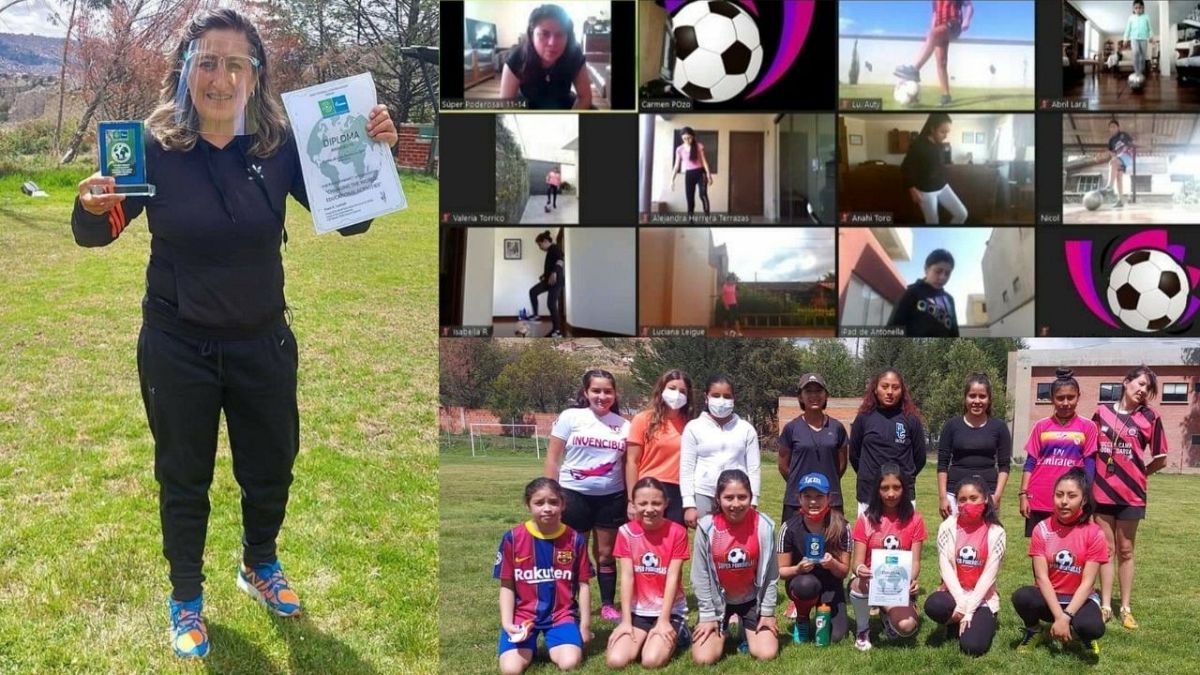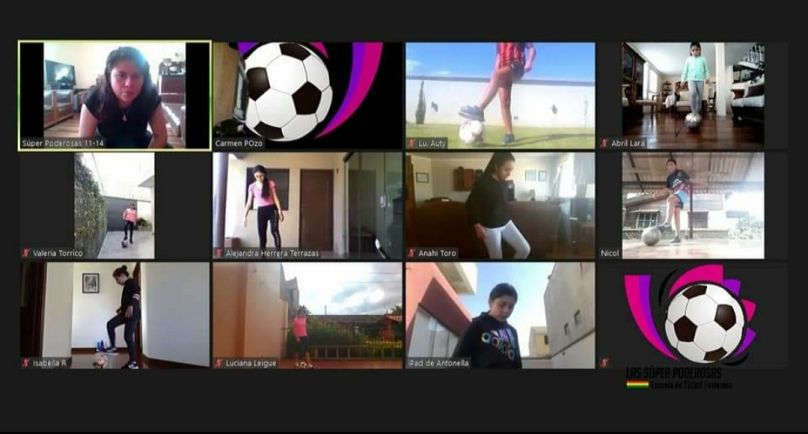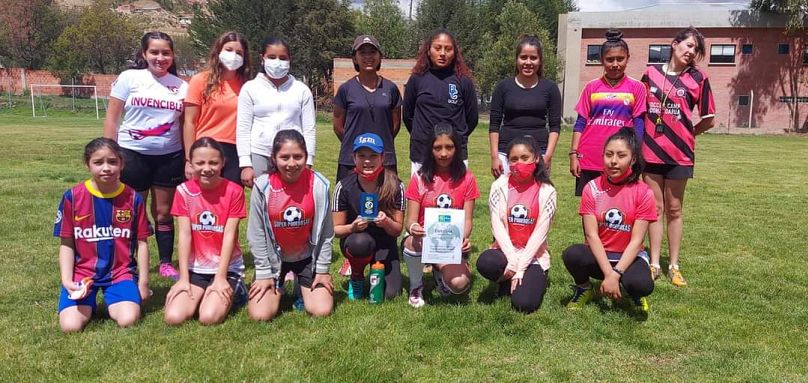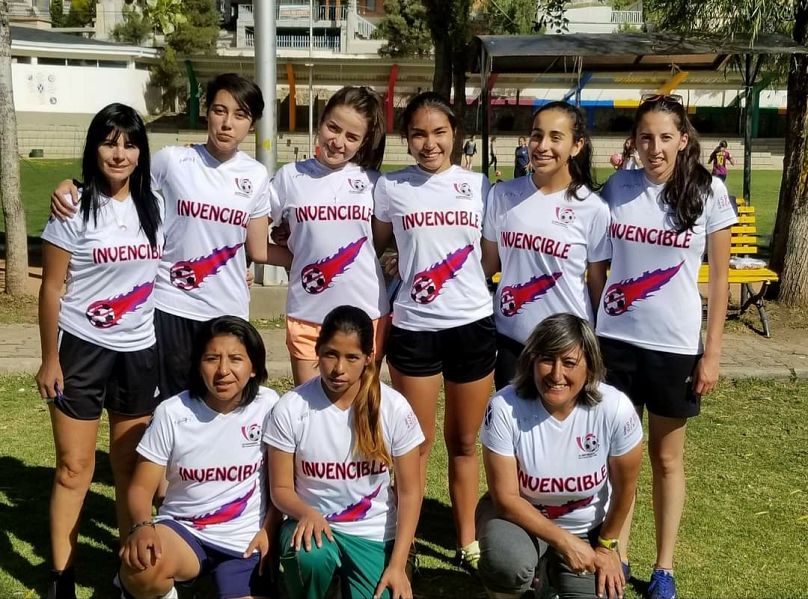With her army of 'super poderosas' (superwomen) girls' football academy in Bolivia, sports journalist Carmen Pozo is raising the next generation of young female athletes.
With her army of 'super poderosas' (superwomen) girls' football academy, Carmen Pozo is raising the next generation of young female athletes and coaches in Bolivia.
The sports journalist and her colleague Zdenscka Bacarreza started the country's first and only girls' football institution called 'Las Super Poderosas' a couple of years ago with just 14 girls on the pitch. But today, over 90 have joined the squad in La Paz.
Her efforts and dedication to not just teaching the beautiful game but also promoting the values taught by sport have earned her this year's Gazprom's Football for Friendship award for her project on "Kicking out the Pandemic," which involved creative online football practices that continue despite coronavirus measures being eased.
Pozo says the award has "definitely been very important" as the academy was competing against more than 100 football schools around the world.
"We did not know that they were going to pay enough attention to a school that was only for women, so at some point, we also opened the doors to all children," she says.
"Receiving this (the award) has been a huge shock because not only has Las Superpoderosas given us a lot of strength, but also for the country to see that we can do things and that we can create things and carry out innovative projects that have an impact at an international level."
'The ball belongs to everyone'
Bolivia ranks 42 among 153 countries by the World Economic Forum’s Global Gender Gap Report, fairing much better than other Latin American countries, and has equal representation in parliament.
But women and girls in Bolivia are at a high risk of gender-based violence, despite a 2013 law that sets out measures to prevent and prosecute violence against women.
And when it comes to football, the girls who train at Pozo's academy face prejudice.
"Several boys tell you that only they can play," says 14-year-old Luciana Lopez, who trains at 'Las Super Poderosas' and hopes to follow in the footsteps of her grandfather Carlos Lopez, an Argentinian football superstar.
"But I feel that it builds more confidence and more character in you by playing such a beautiful sport. I think [sport] is also good for our health and to maintain a beautiful physique for ourselves."
Pozo says girls and boys are not treated equally from the outset.
"The male is always given much more importance, the male is the strong one, the male is the one who does sports," she argues.
But she says: "Women can also play soccer, the field belongs to everyone, the ball belongs to everyone". And her students know this too well.
Despite girls being born into stereotypes that they must help their mothers with the cooking and cleaning, they also have "other things in life, such as playing football or soccer".
Pozo points to one of her students, 13-year-old Sharis Zambrana, who helps her father look after her siblings when he works as her mother does not live with them.
The sports journalist says when the girl plays football, she steps in to look after the children herself.
Sharis says she wants to become a strong leader and show that girls can play football too.
Pozo says the "macho country" is changing for the better and notes that young boys are also being taught to help around the house.
Playing with honour
But training the next generation of female leaders, coaches and athletes is about much more than honing football skills.
The academy has dedicated itself to promoting the nine values set out by F4F, which includes friendship, equality, fairness and health.
It has even incorporated the value of tradition by bringing Bolivian music onto the pitch.
For 15-year-old Thiana Berdeja, who is a player in Bolivia's under 17 national team, she says the values taught by Football for Friendship "help you a lot in life and your day-to-day".
She says those who play football "have more friends, they meet more people, they learn values, they learn to be patient, how to be disciplined, how to be respectful and it also helps them while they are having fun."
For Pozo empowering the girls and young coaches also means letting others take the lead.
A female football association is being formed and the 'superwomen' from the academy will for the first time organise tournaments just for girls.
"We want to see our players there on the pitch... fighting for the ball and following the values we teach them," says Pozo.
"If we lose, we lose, but we do so with honour. And if we win, we also do so with honour."






